Search Results
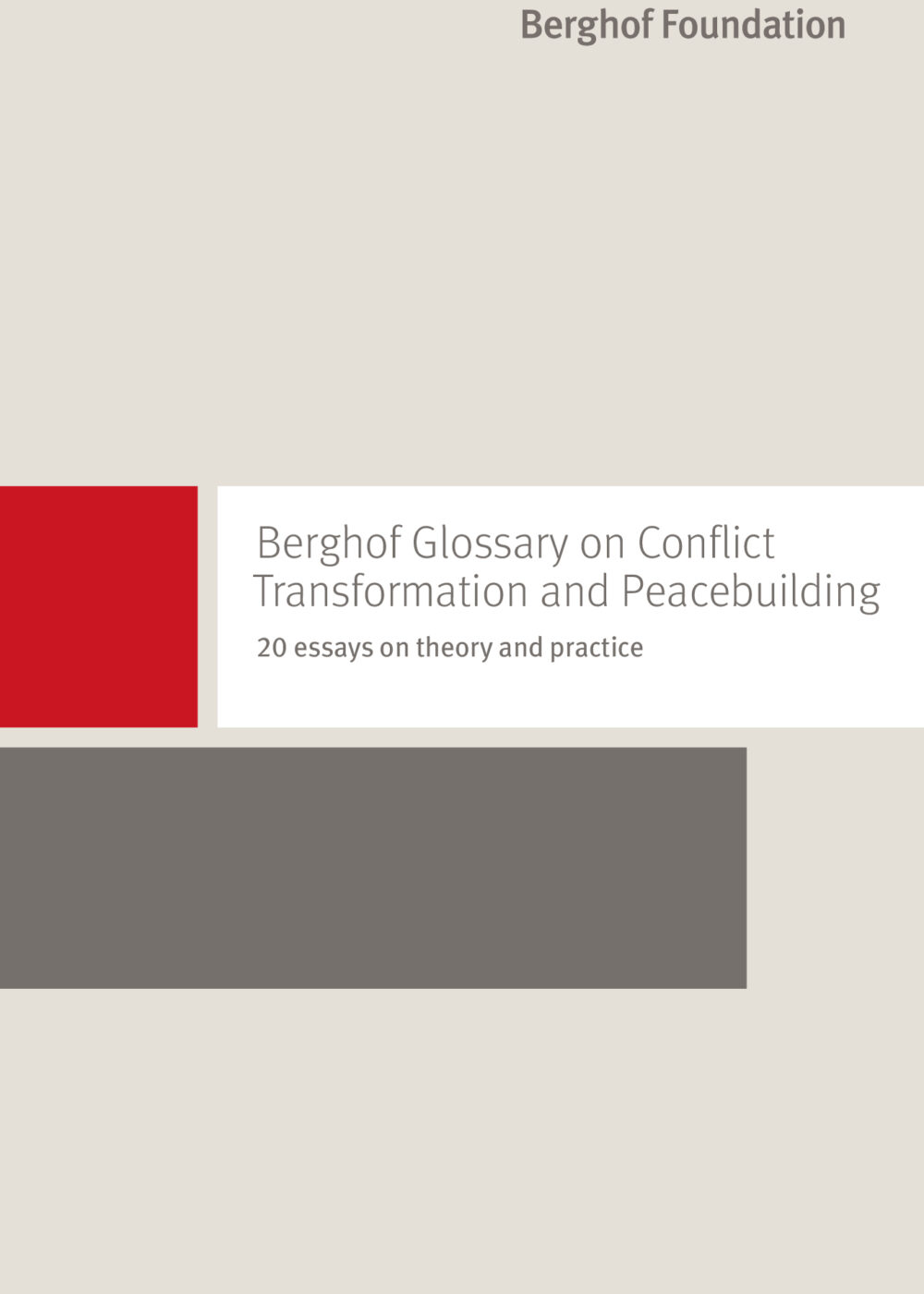
Berghof Glossary on Conflict Transformation20 Notions for Theory and Practice
The 2019 edition of the Berghof Glossary revisits the main principles and approaches that we use in our work to support people and conflict parties around the world. For a second time, our team has embarked on a joint exploration in order to chart a shared understanding of what it takes to create “space(s) for conflict transformation”.
- Year 2019
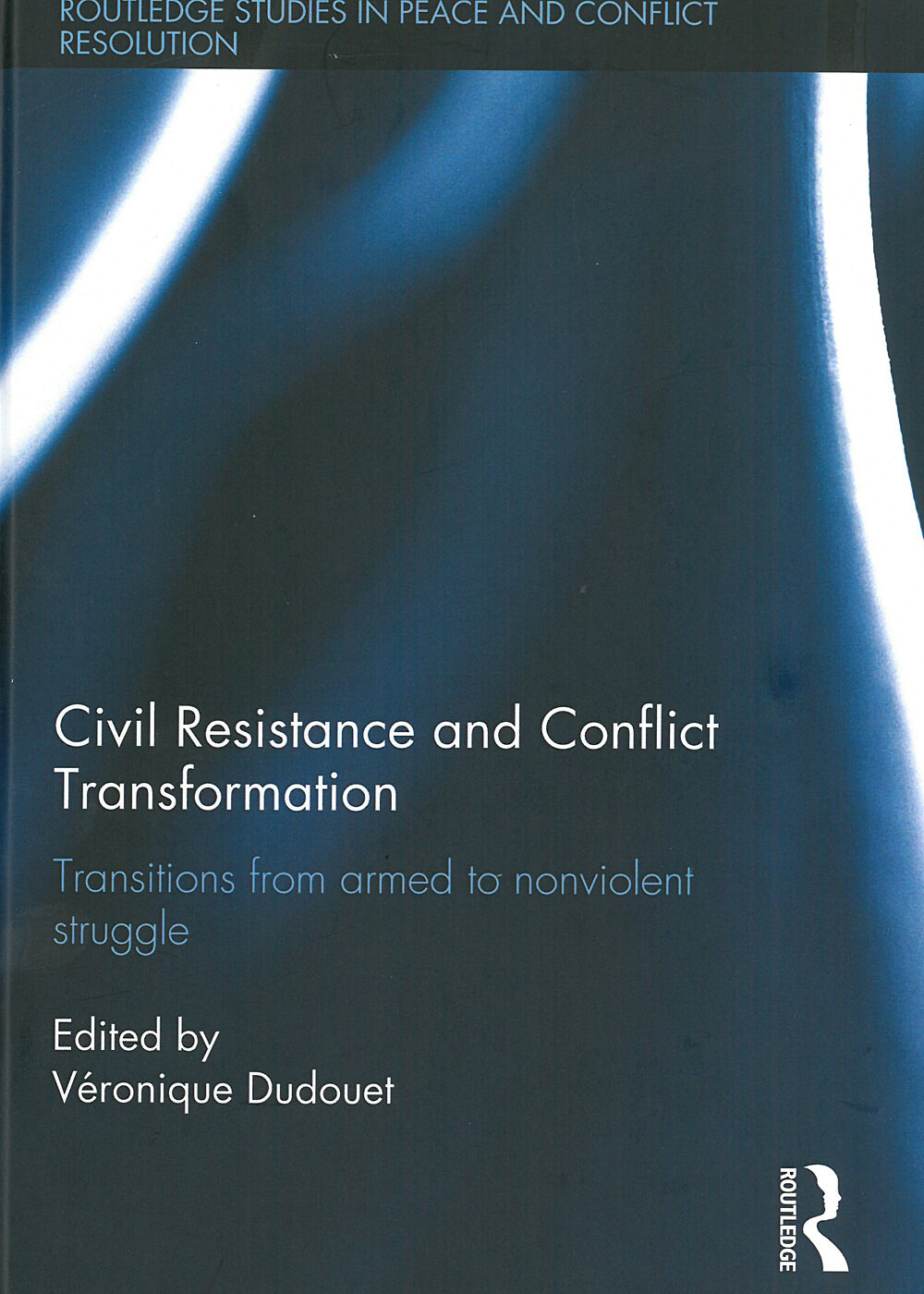
Civil Resistance and Conflict TransformationTransitions from armed to nonviolent struggle
This book compiles conceptual and empirical insights on the decision-making process, rationale and determining factors which underlie the strategic shifts undertaken by armed movements towards nonviolent struggle for self-determination or regime change.
Bringing together academics from various disciplinary traditions the book offers a wide range of case studies – including South Africa, Palestine and Egypt – through which to view the changes from violence to nonviolence within self-determination, revolutionary or pro-democracy struggles.
- Year 2015
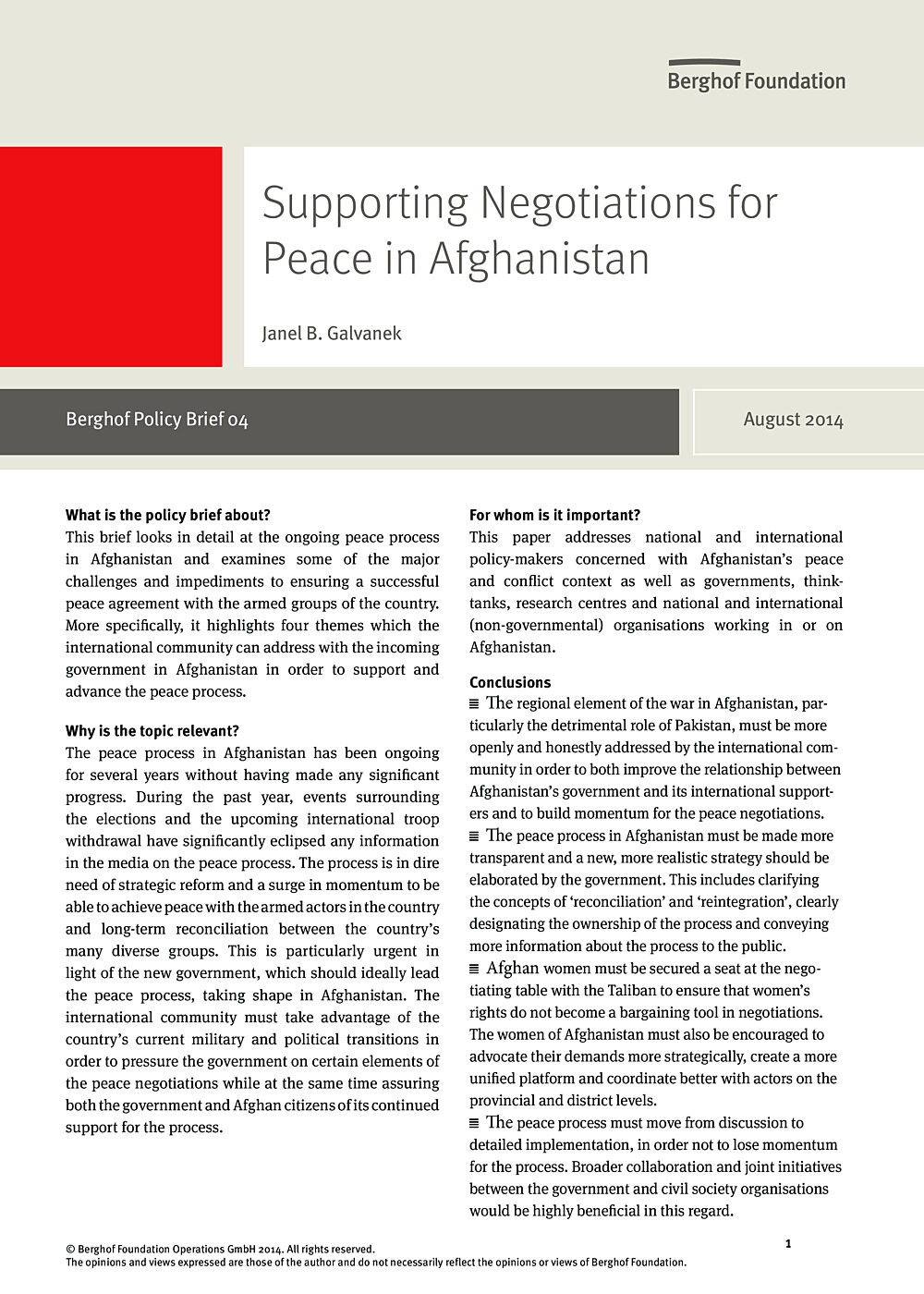
Supporting Negotiations for Peace in AfghanistanPolicy brief No. 4
- Year 2014
- Author(s) Janel B. Galvanek
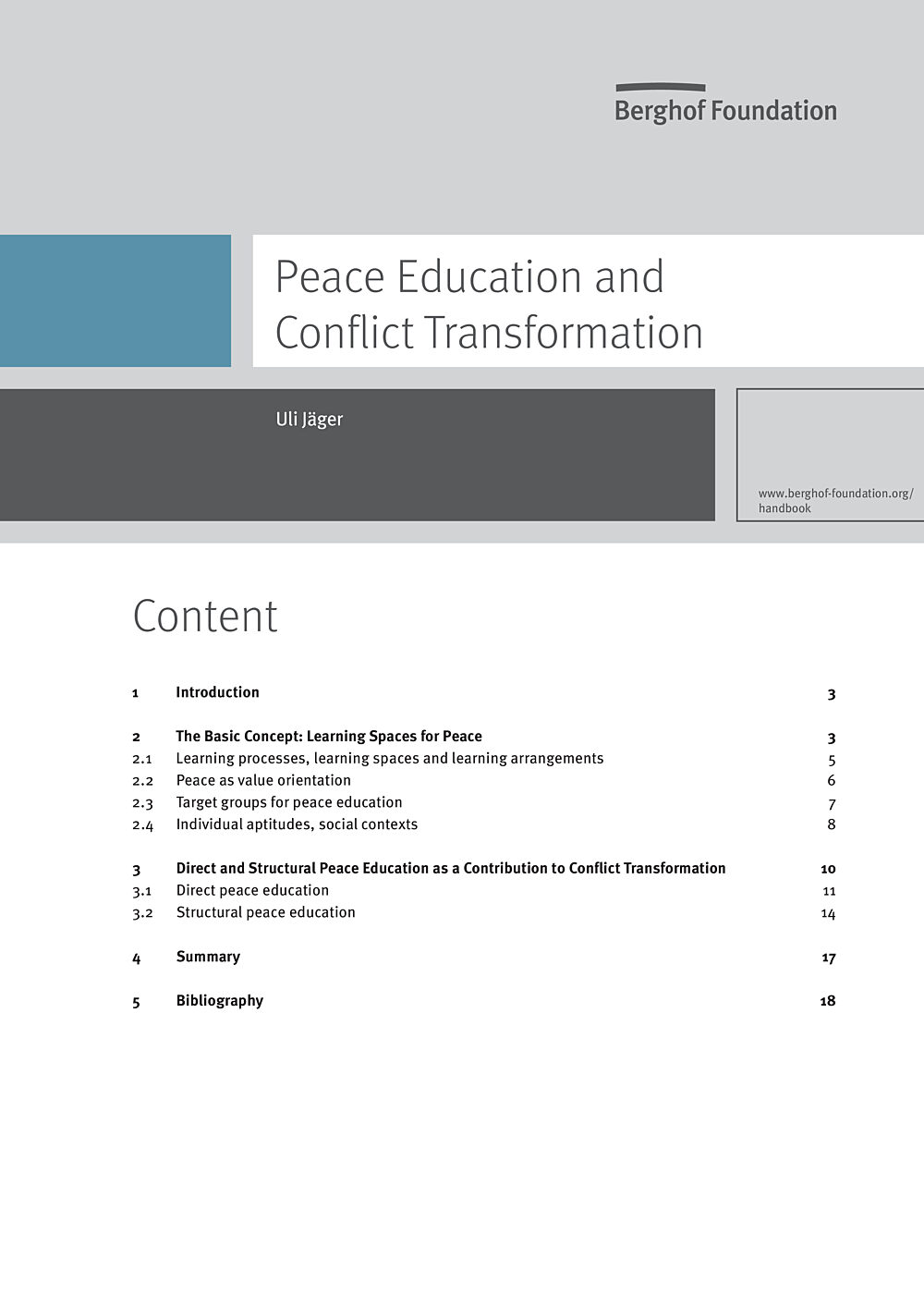
Peace Education and Conflict TransformationHandbook Article
Develops a basic concept of internationally oriented, context-related and process-oriented peace education with clearly defined target groups. Against this background, the author presents a comprehensive and practical approach to peace education in crisis and conflict regions, the aim being to promote conflict transformation. In this context, a fundamental distinction is made between direct peace education (encounter, inspiration, training) and structural peace education (pilot projects, curricula, implementation). The context-related interaction between these two basic forms is identified as a promising approach and offered up for discussion. Brief case studies from the practice of peace education are presented for the purpose of illustration.
- Year 2014
- Author(s) Uli Jäger
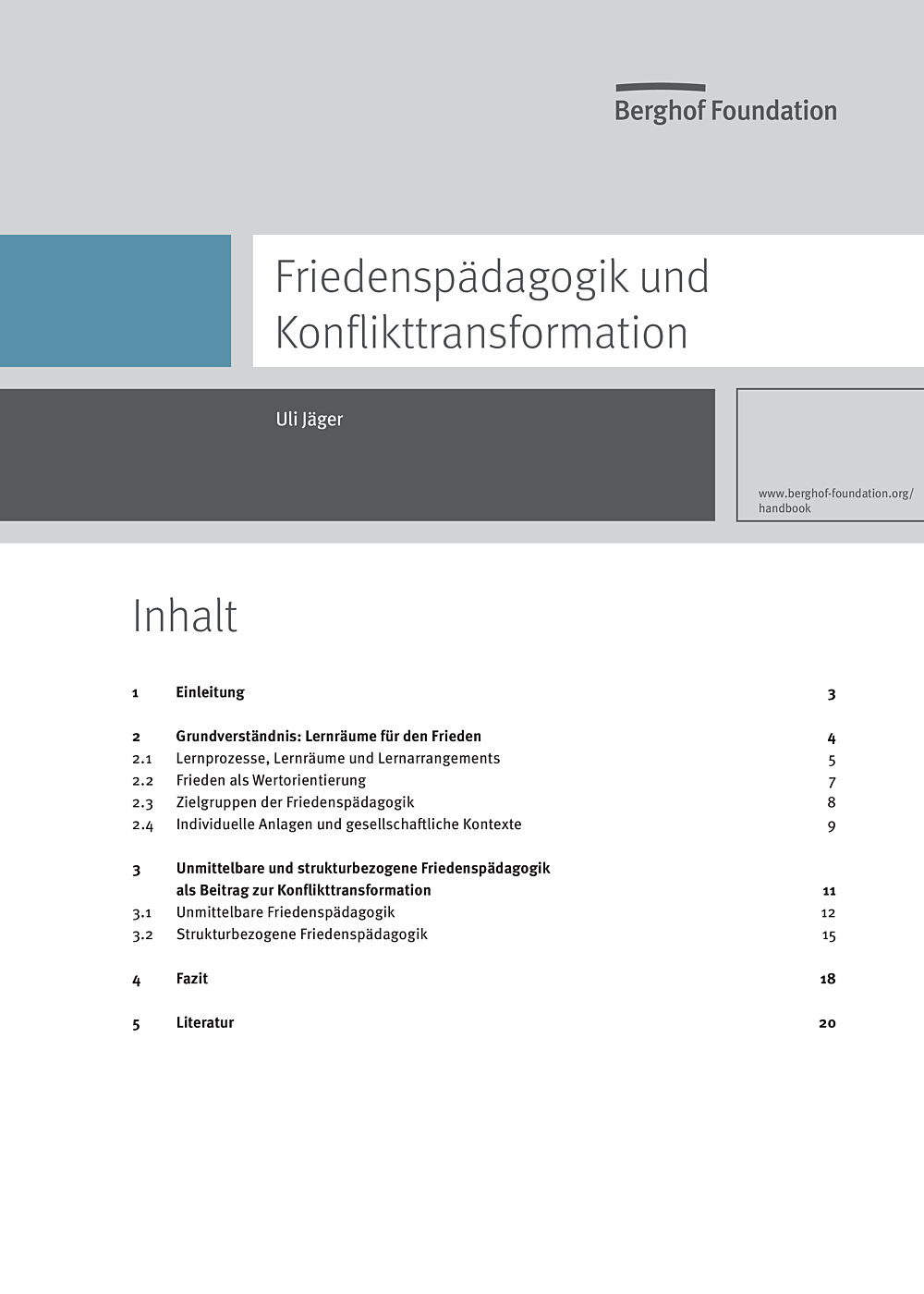
Friedenspädagogik und KonflikttransformationHandbook Article
Entwickelt ein Grundverständnis von international ausgerichteter, kontextbezogener und prozessorientierter Friedenspädagogik mit klar definierten Zielgruppen. Vor diesem Hintergrund wird ein umfassender und praxisorientierter Ansatz für Friedenspädagogik in Krisen- und Kriegsregionen präsentiert, der die Transformation von Konflikten fördern will. Dabei wird grundlegend zwischen unmittelbarer Friedenspädagogik (Begegnung, Inspiration, Qualifizierung) und strukturbezogener Friedenspädagogik (Modellprojekte, Curricula, Implementierung) unterschieden. Das kontextbezogene Zusammenspiel dieser beiden Grundformen wird als ein erfolgversprechender Ansatz zur Diskussion gestellt. Fallbeispiele aus der Praxis der Friedenspädagogik verdeutlichen die Überlegungen.
- Year 2014
- Author(s) Uli Jäger
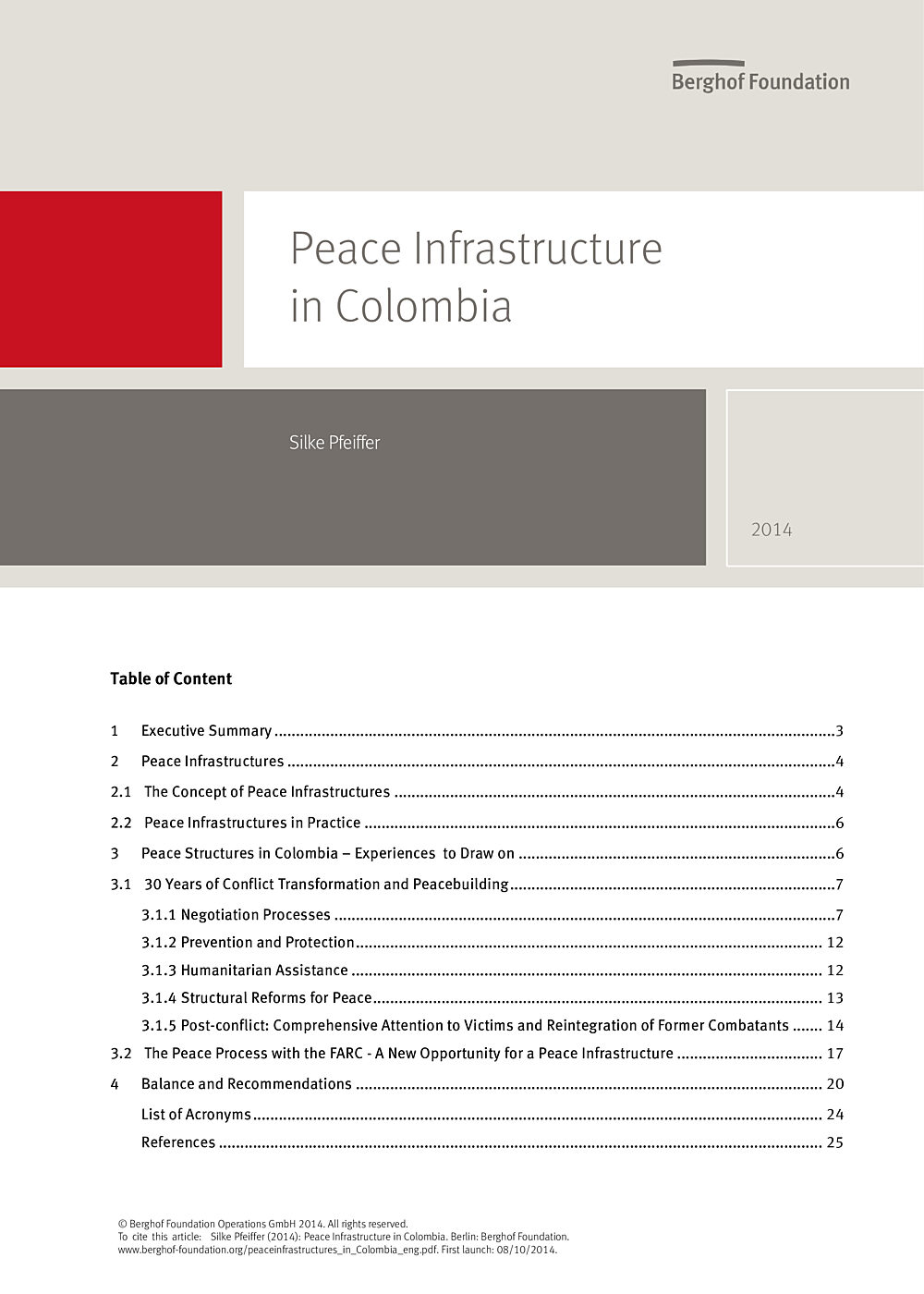
Peace Infrastructure in Colombia
Colombia has a broad array of institutions tasked with different functions that support peace-building. Drawing on the concept of Infrastructure for Peace, the Berghof paper “Peace Infrastructure in Colombia” written by Silke Pfeiffer in early 2014 provides a mapping of the different Colombian entities and analyses their potential contribution for Colombia’s current peace process.
- Year 2014
- Author(s) Silke Pfeiffer
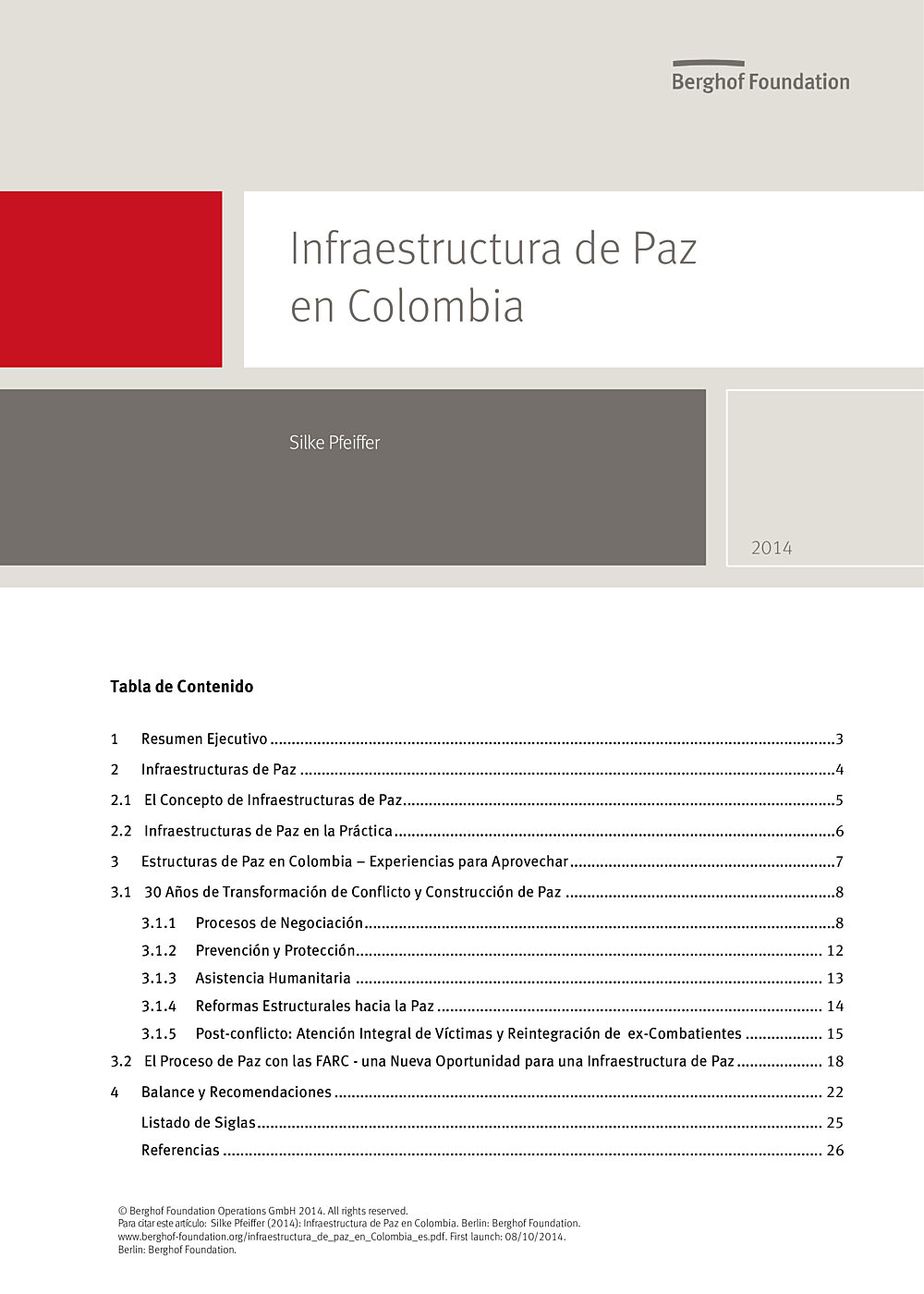
Infraestructura de Paz en Colombia
Colombia cuenta con una amplia gama de instituciones con funciones relacionadas a la construcción de paz. A base del concepto de infraestructura para la paz, este estudio Berghof “Infraestructura de Paz en Colombia”, elaborado a inicios 2014 por Silke Pfeiffer presenta un mapeo de las diferentes entidades Colombianas y analiza su potencial para el actual proceso de paz de Colombia.
- Year 2014
- Author(s) Silke Pfeiffer
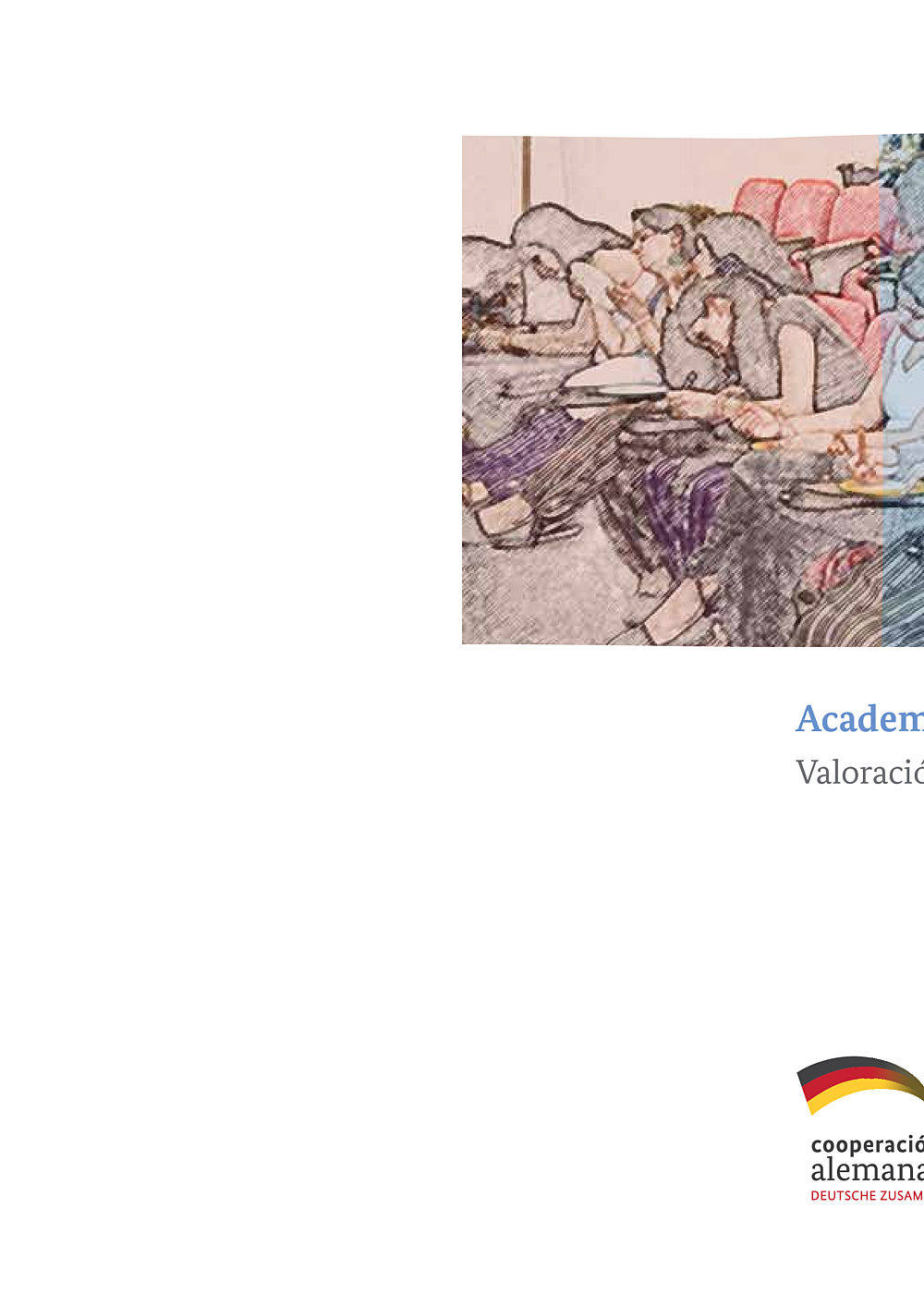
Academia y Construcción de Paz en ColombiaValoración de los aportes de la Cooperación Alemana
El documento brinda a los actores académicos, a la cooperación internacional en Colombia y a actores estatales y no estatales activos en la Construcción de Paz, un panorama de lo que se realizó y cuáles impactos se obtuvieron, igual que las lecciones aprendidas.
- Year 2014
- Author(s) Carlos H. Fernández
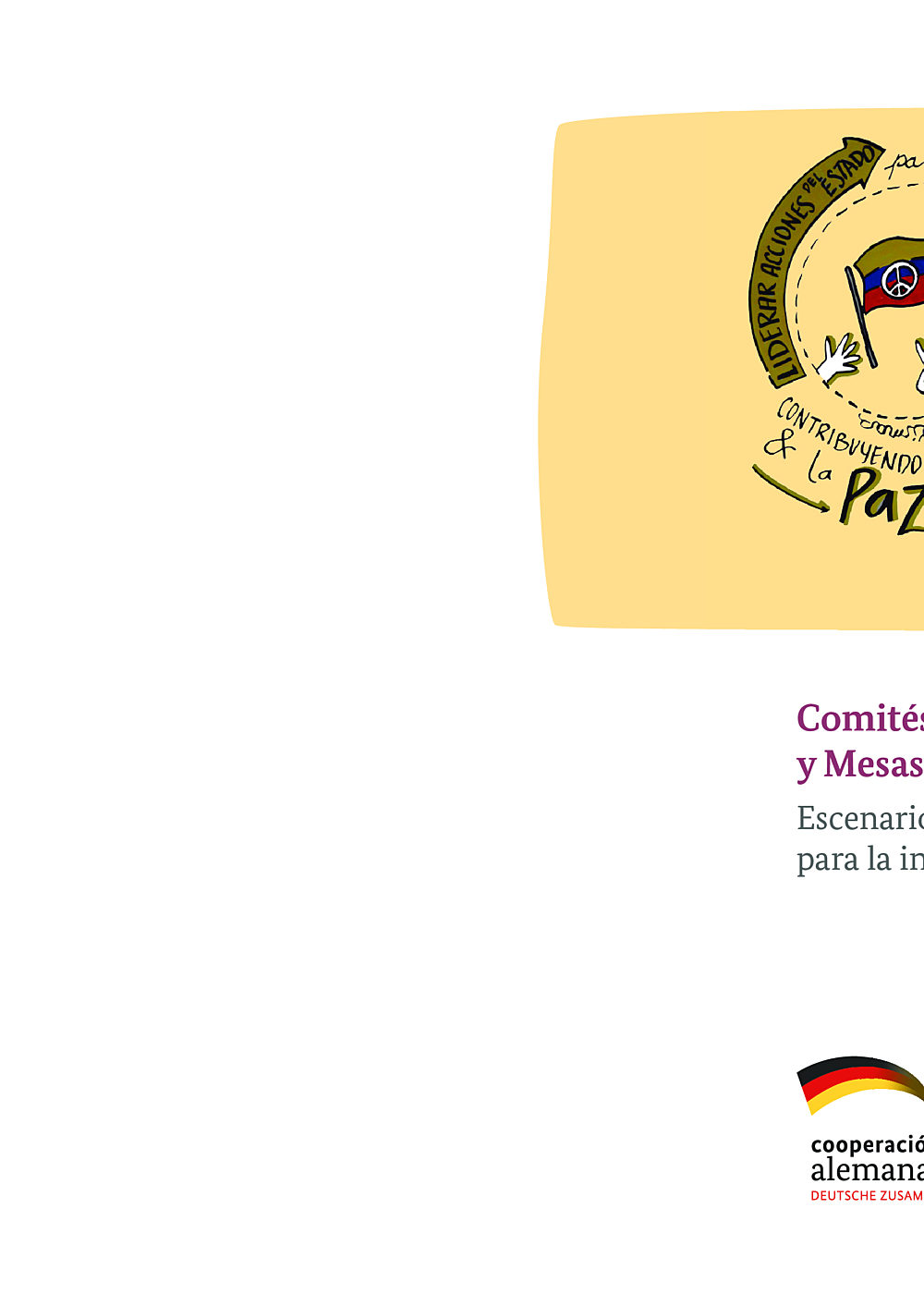
Comités Territoriales de Justicia Transicional y Mesas de Participación de VíctimasEscenarios que favorecen el diálogo entre Estado y Sociedad Civil para la inclusión social y la Construcción de Paz en Colombia
Cercapaz tiene como objetivo fomentar la cooperación entre el Estado y la Sociedad Civil para la inclusión social y la Construcción de Paz. Una de las líneas temáticas priorizadas para su tercera y última fase (2012-2015) es la inclusión social de grupos tradicionalmente excluidos, a través del fortalecimiento de los espacios de participación que plantea la Ley de Víctimas: los Comités Territoriales de Justicia Transicional (Comités, en adelante) y las Mesas de Participación de Víctimas (Mesas, en adelante). Este documento sistematiza los aprendizajes del proceso de asesoría a estos espacios y a los actores que los conforman, y entrega recomendaciones replicables en otras zonas del país. Adicionalmente, como parte del proceso de sistematización y como complemento a este documento, se realizó un video didáctico que ilustra de manera sencilla el funcionamiento de Comités y Mesas, sus interrelaciones, así como las capacidades básicas que deberían tener quienes participan de estos espacios para su buen desarrollo.
- Year 2014
- Author(s) Lorena Cantillo, Hilka Langohr, Juanita Méndez
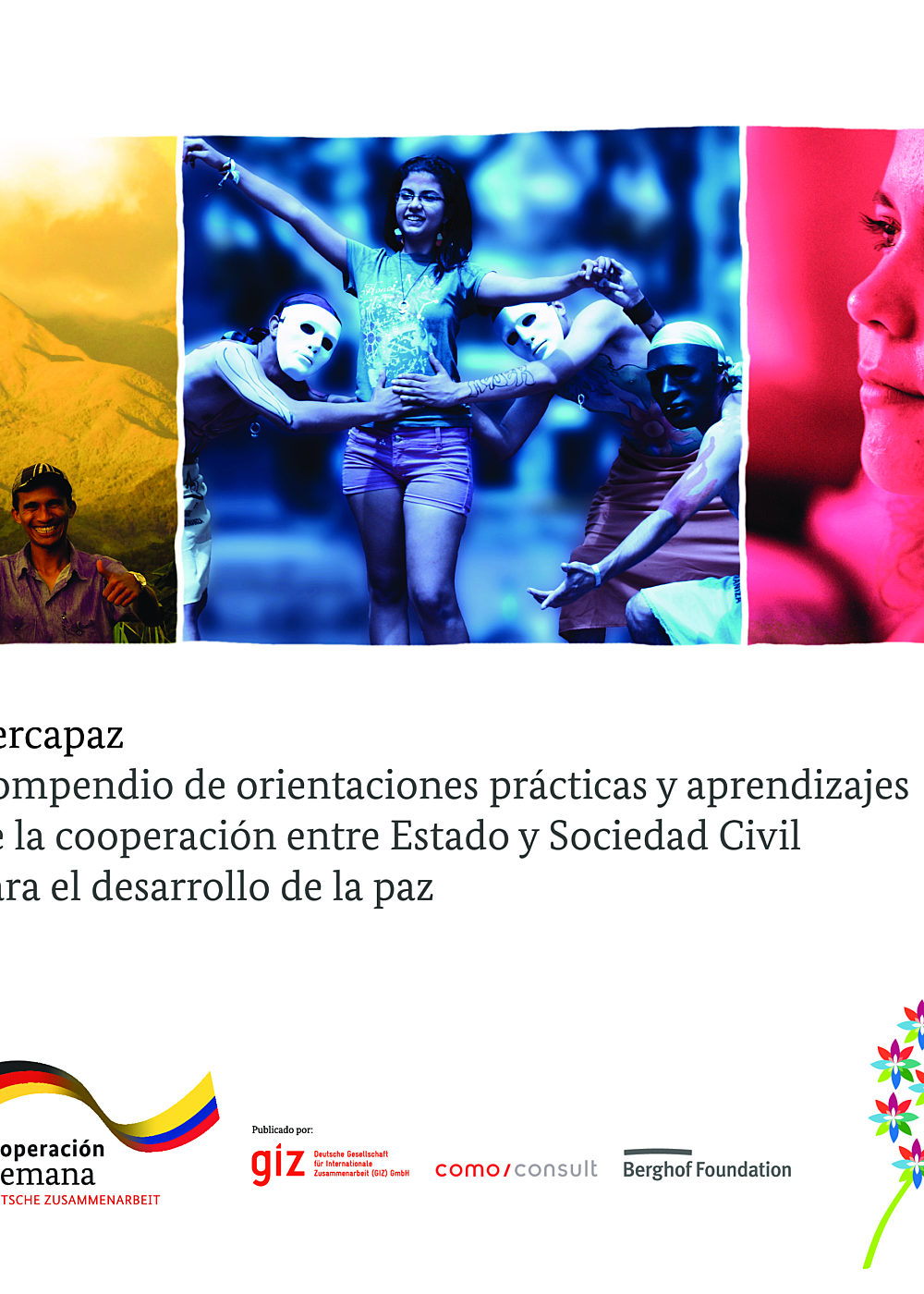
Compendio de orientaciones prácticas y aprendizajes de la cooperación entre Estado y Sociedad Civil para el desarrollo de la paz
¿Cómo lograr que actores con diferentes intereses lleguen a acuerdos? ¿Cómo iniciar diálogos para la construcción de visiones conjuntas? ¿Cómo hacer propicios los escenarios para que generen confianza entre los actores y estimulen el diálogo constructivo? Estas son algunas de las preguntas surgidas en los procesos que giran en el ámbito de la Construcción de Paz y la gobernabilidad.
Las experiencias que se encuentran en este Compendio muestran algunos posibles caminos y opciones para abordar estas preguntas. Surgen en el marco del trabajo realizado entre 2007 y 2014 por el programa Cercapaz, Cooperación entre Estado y Sociedad Civil para el Desarrollo de la Paz. Cercapaz es un programa que se ejecuta a través de la Agencia Alemana de Cooperación Internacional al Desarrollo (GIZ, por su sigla en alemán) por encargo del Ministerio Federal de Cooperación Económica y Desarrollo de Alemania (BMZ, por su sigla en alemán). Su tercera y última fase culmina en marzo de 2015.
- Year 2014
- Author(s) Jaime Andrés Gómez, Hilka Langohr, María Claudia Linares